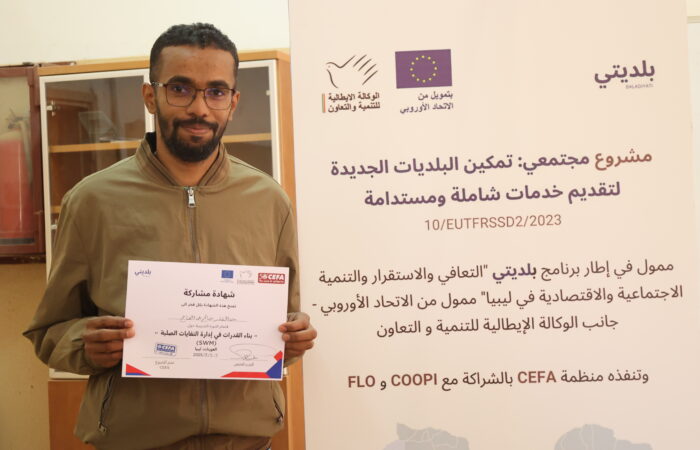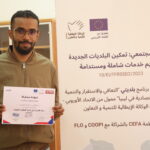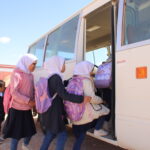Al Kufra, in the southeast of Libya, is home to over 45,000 people, with many facing limited access to essential services such as primary healthcare, clean water and sanitation.
Thirteen-year-old Amal from Al Kufra is affected by type 1 diabetes, a chronic condition in which the pancreas produces little to no insulin, leaving her dependent on regular insulin injections. The supply of insulin is as critical as it is uncertain at the Attiah Alkasah Hospital, a priority health facility for the local communities: even when available, sometimes insulin is not properly stored, causing patients like Amal to interrupt their vital treatment.
Due to insulin’s disruptions, Amal used to experience regular break downs, resulting in unstable blood sugar levels which caused dehydration and weight loss. Her condition did not allow her to enjoy a playful childhood as the other children her age. Her parents tried everything they could to provide for their daughter and minimize the constant danger but could not prevent all risks.
With the support of the Baladiyati programme, funded by the European Union through the EU Africa Trust Fund, the Italian Agency for Development Cooperation (AICS) and the INGO Première Urgence Internationale (PUI) partnered to improve people’s access to basic healthcare in Al Kufra, targeting in particular the Attiah Alkasah Hospital, whose pharmacy was improved with key infrastructural works and equipped with primary items such as needles, syringes, strips for glucometers, as well as essential drugs, like the one Amal needs to keep her diabetes under control. In addition, this intervention allowed for the medical and paramedical staff to receive adequate trainings on Pharmacy Management and Supply Chain, aimed at improving the quality of medical service provision.
Amal’s father, Omar, told us: “We were constantly worried about Amal’s next insulin shot, wondering whether we would find it available or not. We didn’t know what to do and we had limited options. Now the doctors told us that, with the rehabilitation of the pharmacy, the Attiah Alkasah Hospital will have regular insulin supplies, and Amal, and patients like her, will no longer be left behind.”
This story was written by AICS based on content collected on ground by Premiere Urgence Internationale
Photo credit: Canva – copyright free






